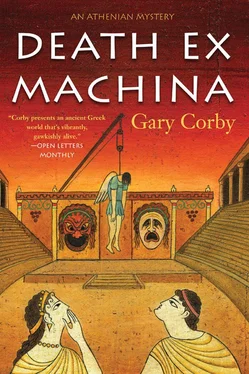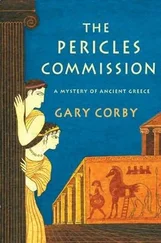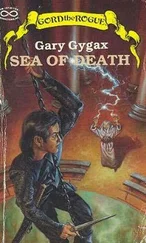Gary Corby - Death Ex Machina
Здесь есть возможность читать онлайн «Gary Corby - Death Ex Machina» весь текст электронной книги совершенно бесплатно (целиком полную версию без сокращений). В некоторых случаях можно слушать аудио, скачать через торрент в формате fb2 и присутствует краткое содержание. Год выпуска: 2015, ISBN: 2015, Издательство: Soho Press, Жанр: Исторический детектив, на английском языке. Описание произведения, (предисловие) а так же отзывы посетителей доступны на портале библиотеки ЛибКат.
- Название:Death Ex Machina
- Автор:
- Издательство:Soho Press
- Жанр:
- Год:2015
- ISBN:978-1-61695-520-5
- Рейтинг книги:3 / 5. Голосов: 1
-
Избранное:Добавить в избранное
- Отзывы:
-
Ваша оценка:
- 60
- 1
- 2
- 3
- 4
- 5
Death Ex Machina: краткое содержание, описание и аннотация
Предлагаем к чтению аннотацию, описание, краткое содержание или предисловие (зависит от того, что написал сам автор книги «Death Ex Machina»). Если вы не нашли необходимую информацию о книге — напишите в комментариях, мы постараемся отыскать её.
Death Ex Machina — читать онлайн бесплатно полную книгу (весь текст) целиком
Ниже представлен текст книги, разбитый по страницам. Система сохранения места последней прочитанной страницы, позволяет с удобством читать онлайн бесплатно книгу «Death Ex Machina», без необходимости каждый раз заново искать на чём Вы остановились. Поставьте закладку, и сможете в любой момент перейти на страницу, на которой закончили чтение.
Интервал:
Закладка:
“And what did you think of those men?” Lysanias asked. “Did you think more, or less, of them?”
“Why, less,” said. “No one respects a buffoon.”
“Precisely. Now what of a man you visit, who proves to be a man of culture and dignity?”
“Then that would be someone I respect,” I said.
“Yes,” Lysanias said. “Now, young man, think of all these people who have come to Athens to be entertained by us, to see our plays, which are the best in the world. If we cannot show the plays because of murder, if everyone sees we cannot keep our own actors alive in our own city, if we must send all those people home having admitted we can’t stage a play, then how will we appear to our visitors?”
“We’ll look like buffoons,” I said.
Lysanias nodded. “You understand. I will add this: that it is easier to attack an enemy whom you don’t respect. But it is harder to feel animosity against someone who shows competence in all things.”
“Surely, Lysanias, this cannot be a matter of war or peace,” I said.
“The entertainment a man provides for his friends says as much about him as how he carries his spear,” Lysanias said, and his voice became hard. I remembered that this was a man who’d carried his spear many times. He added, “The Great Dionysia tells the rest of the world how we wish them to see us. Our poets are as much a function of the state as our diplomats.”
We had passed through to the second courtyard, where we found Sophocles lying face down in the shade, on the cool stone floor. A slave rubbed olive oil into his shoulders and back.
He looked up as we approached, and said, “Join me.”
Lysanias said, “Hello, Sophocles. Don’t mind if I do.” He dropped his clothes and lay down beside Sophocles. His whole body was wiry and thin. A slave appeared with oil flask in hand. The slave began at once to massage the back of Lysanias and pour oil on his skin.
I hesitated. I wasn’t used to enjoying the gymnasium with respectable old men. In fact, unlike most men I rarely visited the gym at all-somehow I never seemed to have the time-and when I did, it was usually to see my friend Timo, who would often be surrounded by young men our own age.
I knew the etiquette though. It would be rude if I stood, or merely sat beside them.
I pulled my chiton off over my head-it saved having to undo the shoulder knot-and handed the clothing to a slave, who placed it on the bench against the wall. I lay down on the other side of Sophocles.
Another slave appeared, also with a flask of oil. He commenced to massage my shoulders with oily hands. I tried to relax.
I said, “I came to see you, Sophocles, because I must learn about Romanos.”
“He was a metic,” Sophocles said, as if that explained everything.
“Yes, but what was he like?”
Sophocles considered the question.
“As a man, I really can’t say,” he said, after thinking about it. “Professionally, he was a good actor. I had used him before in minor roles. Certainly this play offered him a big chance and I must say he impressed me. It’s unusual for a metic to have a major role in a Dionysia.”
The slave began to massage my legs.
I said, “Did you socialize?”
“As I said, he was a metic.”
It occurred to me that Sophocles preferred the company of his peers.
“What about Lakon?” I asked.
“Lakon’s a citizen,” Sophocles said. “And I’ve known him a very long time.”
“Then how does he come to be an actor?” I asked.
“You have it the wrong way round,” Sophocles said. “Most actors are citizens. The exceptions are the metics.”
I asked, “In the play, with the original cast, was Phellis the only man to use the machine?”
“Both the first and second actors flew on the machine. Lakon played Zeus in a later scene.”
“What about the third actor?”
“Third actors never play a god. They’re not important enough.”
“How does that work?” I asked. “Does importance matter?”
“Not the way you’re thinking, but consider the scene casting,” Sophocles said. “There’s only one machine. There can never be two gods onstage at the same time.”
“Oh, I see. Is there much squabbling over the parts?” I asked.
“Constantly,” Sophocles said.
His tone alone was worth a day of explanation.
“You said you’d used Romanos previously?”
“Several years ago, when another actor failed me-the poor fellow had been beaten by brigands as he traveled the country roads-I needed a quick study. Someone suggested I look at Romanos. Well, I was desperate, I would have hired a donkey if it could speak the lines. But Romanos was everything the recommender had said.”
“Then you knew Lakon first?”
“Citizen actors start when they’re boys. They come up through the chorus. Throughout the year there are festivals and choral performances where we need children to sing. I and the other directors choose from among the sons of respectable citizens.”
I knew that part all too well, because when I was a boy I had volunteered, but had never been chosen. I remembered standing nearby while someone told my father it was because I couldn’t sing. My little brother Socrates had never been chosen because they said he was too ugly.
“Most of the boys are talentless, of course,” Sophocles said, not knowing my own history. “Perhaps a quarter of the boys can sing passably well. We directors notice the ones who sing well. We choose the cream from throughout the year to fill the choruses for the Dionysia. Of the cream, a handful can also dance. From each year, perhaps one or two of the best will like the stage well enough that they stick with it when they grow to men.”
I was astonished. “Do you mean to say you hired Lakon when he was a boy?”
“How old do I look?” Sophocles demanded. I’d insulted him. Lysanias tittered.
“Sorry, Sophocles, but I don’t understand.”
Sophocles rolled over so the slave could massage his front. He added, “That’s something Lakon and I have in common. We both got our start in the chorus.”
“You were an actor, Sophocles?” I said, surprised.
“I was passable, in my day,” he allowed, in the tone of voice a man uses when what he means is that he’s too modest to say he was the best.
Sophocles continued, “I was selected by Aeschylus to perform in the chorus. These days Aeschylus is my friend, but back then he was my director. Lakon too, when he was a boy, was selected by Aeschylus. By that stage I was a young man, serving as an elder member of the chorus. I remember standing in the same chorus line with Lakon.”
“In a sense you grew up together,” I said.
“No. Lakon returned with his parents to their home town, Rhamnus. He didn’t play again until he returned to Athens more than a decade later, as a young but fully grown man. By then I had given up acting. A man can’t be both an actor and the writer, and the writer is of more service to the state.”
“He is?”
“Certainly he is,” Sophocles said. “I’m surprised you even question it. Tell me, young man, why do you like tragedies?”
I didn’t like tragedies. I’d always preferred the comedies. But this didn’t seem the moment to mention it.
“Well,” I said, desperately trying to think of something. “Tragedies are very … er … tragic-”
Lysanias laughed.
Sophocles frowned. “Of course you know the purpose of our plays-”
“To entertain people,” I said at once. “That’s why more people go to see the comedies than the traged …” I trailed off.
Sophocles stared at me openmouthed, and I suddenly realized I’d blundered.
“Er … that is …” I groped for the right words.
Читать дальшеИнтервал:
Закладка:
Похожие книги на «Death Ex Machina»
Представляем Вашему вниманию похожие книги на «Death Ex Machina» списком для выбора. Мы отобрали схожую по названию и смыслу литературу в надежде предоставить читателям больше вариантов отыскать новые, интересные, ещё непрочитанные произведения.
Обсуждение, отзывы о книге «Death Ex Machina» и просто собственные мнения читателей. Оставьте ваши комментарии, напишите, что Вы думаете о произведении, его смысле или главных героях. Укажите что конкретно понравилось, а что нет, и почему Вы так считаете.












